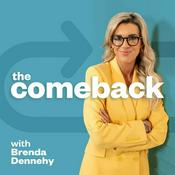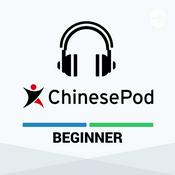118 episodes
Barriers, Mentorship & Equity in Lactation Certification with Mandy Golman, PhD, MS, RN, IBCLC
18/2/2026 | 33 mins.In this episode of Behind the Latch, Margaret sits down with Dr. Mandy Golman, PhD, MS, RN, IBCLC, MCHES, professor at the University of Texas at Tyler, to discuss her powerful qualitative study exploring the perceptions, barriers, and facilitators to obtaining the IBCLC certification among U.S. healthcare practitioners.
Margaret first encountered this research as a poster presentation at the ILCA Conference in Tampa — and immediately knew it was a conversation the field needed to hear.
Dr. Golman’s study, expected to be published later this year, examines who is able to enter the IBCLC pathway — and who is not — through a public health and equity lens. With 19,000 IBCLCs serving the United States and 93% identifying as white, the findings raise important questions about access, mentorship, compensation, and structural barriers within our profession.
Together, Margaret and Dr. Golman unpack what the data reveal — and what must change.
🔍 What We Talk About
How Dr. Golman’s background in maternal-child health and public health shaped this research
Why workforce diversity in lactation care is a public health issue
The perception that the IBCLC credential “adds weight” professionally — but often without financial return
Why many hospital-based IBCLCs are required to certify without institutional financial support
The persistent bias that IBCLCs must also be RNs to be considered “legitimate”
Financial barriers beyond tuition — unpaid clinical hours, childcare, lost wages, transportation
Why indirect costs often delay certification for years
Mentorship as the central bottleneck in the IBCLC pipeline
The lack of standardized mentorship processes and consistent training experiences
Why “mass emailing IBCLCs” to find a mentor reflects a broken system
What a centralized, structured mentorship model could look like
The role of state coalitions, professional organizations, and grant funding
Medicaid reimbursement challenges and why payment structures matter for access
How passion alone cannot sustain a workforce without structural support
What meaningful reform could look like — starting with mentorship
🧠 Key Takeaways for IBCLCs & Students
The IBCLC credential is highly valued — but the pathway remains structurally inequitable.
Indirect costs (lost wages, unpaid hours, childcare) are often more prohibitive than exam fees.
Mentorship access is inconsistent and frequently the biggest barrier to certification.
Without structural support and compensation reform, the field risks burnout and limited diversity.
Improving mentorship infrastructure could significantly expand access and representation.
Workforce diversity is foundational to culturally responsive lactation care and trust-building.
Public health advocacy must include strengthening the IBCLC pipeline — not just improving breastfeeding rates.
👩🏫 Guest
Dr. Mandy Golman, PhD, MS, RN, IBCLC, MCHES
Professor, University of Texas at Tyler
📝 Connect with Margaret
📬 Email: [email protected]
📸 Instagram: @margaretsalty
📘 Facebook: Margaret Salty
Music by: The Magnifiers – My Time Traveling MachineFrom Wonder to Publication: Writing a Case Study Without a PhD with Indira Lopez-Bassols, IBCLC
11/2/2026 | 30 mins.In this episode of Behind the Latch, Margaret interviews Indira Lopez-Bassols, IBCLC, educator, and PhD candidate based in London, about her journey from clinical lactation consultant to published author in the Journal of Human Lactation.
Indira shares the story behind her case study, “Assisted Nursing: A Case Study of an Infant With a Complete Unilateral Cleft Lip and Palate” and her recent reflection piece, “Three Seeds of Inspiration: How I Published My First Case Study Without a PhD” .
Together, they unpack what holds IBCLCs back from publishing, how to move from clinical wonder to academic writing, and why research must become more accessible to practicing clinicians.
What We Talk About
Indira’s work in a specialist NHS breastfeeding clinic in the UK
Teaching future lactation consultants and pursuing a PhD in breastfeeding education
The three “seeds of inspiration” that moved her from reader to author
Why attending a JHL writing session at ILCA changed everything
What an editor told her when she doubted whether her case was “spicy” enough
Why you do not need a PhD to write and publish a case study
How she structured her first case study by studying medical literature methodology
The powerful cleft lip and palate case that became her first JHL publication
Assisted nursing using a nipple shield and NG tube to support direct breastfeeding
Why cleft lip and palate infants are often assumed unable to breastfeed — and how this case challenged that assumption
The emotional dimension of clinical practice: witnessing the “impossible”
Why wonder is the essential ingredient for writing
Burnout, mechanistic care, and losing the capacity to recognize awe
Making research accessible for non-academic IBCLCs
Her creation of the international Research Hub through the Centre for Breastfeeding Education and Research
The Three Seeds of Inspiration
Indira describes three pivotal moments:
1. Reading a Case Study
A published case study on biological nurturing sparked the realization: “Maybe I could do this too.”
2. Attending a JHL Writing Session
At ILCA, editors clearly explained manuscript types and encouraged non-academic clinicians to submit. When Indira expressed doubt, she was told simply:
“Just write them.”
3. Witnessing the Impossible
Supporting a mother determined to breastfeed her infant with a complete unilateral cleft lip and palate became the turning point. The dyad exclusively fed mother’s own milk, used no bottles, and later transitioned to direct breastfeeding without assistance after surgeries.
That clinical experience — rooted in creativity,...Mentorship That Matters: Training the Next Generation of IBCLCs with Kristina Chamberlain, CNM, ARNP, IBCLC
21/1/2026 | 40 mins.As more people pursue the IBCLC credential, mentorship has become one of the most critical—and misunderstood—components of lactation education. In this episode, Kristina and I take a close look at Pathway 2 and Pathway 3 mentorship, clarifying what mentors are actually responsible for and why mentorship must go beyond observation and paperwork.
Kristina explains that effective mentorship is engaged, relational, and intentional. We discuss how mentors model professionalism, communication, boundaries, and ethical care—not just clinical skills. We also talk openly about the fears many IBCLCs have about becoming mentors, including concerns about readiness, time, liability, and “doing it right,” and why those fears shouldn’t stop experienced clinicians from stepping into mentorship roles.
This conversation also highlights the structural supports built into Pathway 2 programs, the additional lift often required in Pathway 3 mentorship, and why access to high-quality mentorship remains a major barrier to growing and diversifying the IBCLC workforce. Throughout the episode, Kristina shares practical, experience-based strategies for both mentors and mentees—and a hopeful vision for how mentorship could be better supported and valued across the profession.
🔍 What We Talk About
The difference between mentoring vs. supervising clinical hours
What IBCLC mentors are truly responsible for in Pathway 2 and Pathway 3
How students should be gradually and ethically integrated into hands-on care
Common gaps students face when transitioning from coursework to clinical practice
Tools that support mentorship, including IBLCE outlines and LEAARC skill checklists
Why learning from multiple mentors can strengthen clinical competence
Liability, affiliation agreements, and student protections in Pathway 2 programs
The professional and personal benefits of becoming a mentor
Charging for mentorship: ethics, equity, and value exchange
Why mentorship is part of our professional obligation as IBCLCs
What Kristina hopes the future of lactation mentorship will look like
🧠 Key Takeaways
Mentorship is an active teaching relationship, not passive oversight.
Students need meaningful, hands-on experience—not observation alone.
You do not need to be a “perfect” IBCLC to be an effective mentor.
Mentorship strengthens clinical skills, confidence, and professional growth.
Supporting mentors is essential to the future of the lactation profession.
👩🏫 GuestBody-Led Breastfeeding: Understanding Infant Suck Strength with Dr. Ellen Chetwynd
14/1/2026 | 45 mins.In this episode of Behind the Latch, Margaret sits down with Ellen Chetwynd, IBCLC, PhD, and longtime Editor-in-Chief of the Journal of Human Lactation, to explore a fundamentally different way of understanding breastfeeding challenges: body-led breastfeeding and the Infant Suck Strength Exam (ISSE).
Dr. Chetwynd shares how years of clinical practice—and noticing what wasn’t explained by common diagnoses like thrush, Raynaud’s, or tongue-tie—led her to focus more closely on the infant’s body, neurology, and suck function. Together, Margaret and Ellen unpack how the ISSE helps clinicians move beyond appearance-based latch assessment to identify where suck strength is weak, how the tongue is functioning at the breast, and how infant compensation patterns often drive pain, inefficiency, and feeding struggles.
This conversation bridges lactation science, cranial nerve physiology, and gentle body-based intervention, offering clinicians practical tools while challenging reductionist approaches to infant oral dysfunction.
🔍 What We Talk About
How Ellen entered the field of lactation through nursing and public health
Why “bucket diagnoses” (yeast, Raynaud’s, tongue-tie) persist in lactation care
What body-led breastfeeding means—and why the baby is often the primary driver
The clinical gap that inspired development of the Infant Suck Strength Exam (ISSE)
Why digital oral exams miss what’s happening at the breast
How the ISSE is performed and what each pull-back reveals about suck strength
Why the ISSE often functions as both assessment and treatment
Infant compensation patterns: jaw movement, lip use, body tension, and asymmetry
The role of cranial nerves and the cranial base in feeding function
Why asymmetric latch and “guppy pose” can sometimes worsen dysfunction
Gentle, parent-taught techniques to support infant regulation and suck strength
How bottle-feeding strategies must align with breastfeeding goals
When to consider referral for craniosacral or body-based therapy
Why frenotomy alone may destabilize function if body tension isn’t addressed
What future research is needed to validate and study the ISSE
🧠 Key Takeaways for Clinicians
A visually “good” latch can hide significant internal dysfunction.
Infant suck strength and tongue function must be assessed during active feeding.
Many breastfeeding problems originate in infant neuromuscular coordination—not...In this episode of Behind the Latch, Margaret sits down with former student and practicing IBCLC Maya Lott to explore culturally responsive lactation care through the lens of working with Jewish families. Drawing from Maya’s clinical experience, academic background in Jewish philosophy and law, and her widely shared paper on counseling Jewish families, this conversation offers practical guidance for IBCLCs seeking to build trust, reduce friction, and deliver truly family-centered care.
Maya shares how cultural norms, religious practices, and community structures can shape breastfeeding decisions—and how IBCLCs can approach these dynamics with curiosity rather than assumptions. From baby naming practices and modesty considerations to Shabbat, donor milk logistics, and the role of rabbis in healthcare decision-making, this episode provides concrete, respectful strategies clinicians can use immediately in practice.
🔍 What We Talk About
Maya’s path to becoming an IBCLC through Pathway 2—and why it worked well for her as a parent
Why cultural humility matters in lactation care (and what it looks like in real visits)
Breastfeeding as a cultural norm in many Jewish communities—and the pressures that can create
Baby naming practices in observant Jewish families and why asking “Does your baby have a name yet?” matters
Modesty, family roles, and how they can influence in-home lactation visits
Preparing infants for circumcision (bris) and how this can intersect with feeding support
Shabbat, milk removal, and how IBCLCs can collaborate respectfully without practicing religious law
The role of rabbis in health-related decisions—and why this can be empowering for families
Donor milk, milk sharing, and kosher kitchen logistics
How informal milk sharing functions in tight-knit communities
Parallels with other cultural and religious practices (including Muslim milk-kinship laws)
Practical language IBCLCs can use to avoid alienation and build rapport
Why curiosity—not expertise in religious law—is the key clinical skill
🧠 Key Takeaways for Clinicians
Cultural competence starts at the doorstep—small language choices can shape the entire visit.
You don’t need to be an expert in religious law to provide excellent care; awareness of considerations is enough.
Asking open, respectful questions helps families integrate lactation care with lifelong values.
Rabbis (and other faith leaders) often serve as supportive collaborators, not barriers, in healthcare decisions.More Education podcasts
Trending Education podcasts
About Behind the Latch
The Behind the Latch with Margaret Salty is your essential companion for lifelong growth in the field of lactation consulting. Whether you're a student, a newly certified IBCLC, or an experienced consultant, this podcast is designed to support your ongoing journey. Each episode brings you expert interviews, real-world case studies, and the latest research updates—giving you practical insights you can apply directly to your work with breastfeeding families. Hosted by Margaret Salty, an experienced IBCLC, educator, and mentor, this podcast is here to guide you as you build your knowledge, sharpen your skills, and continue to evolve in your practice. The field of lactation is dynamic, and learning never stops. The IBCLC Mentor Podcast will help you stay inspired, stay informed, and stay connected to your purpose.Podcast websiteListen to Behind the Latch, Begin Again with Davina McCall and many other podcasts from around the world with the radio.net app

Get the free radio.net app
- Stations and podcasts to bookmark
- Stream via Wi-Fi or Bluetooth
- Supports Carplay & Android Auto
- Many other app features
Get the free radio.net app
- Stations and podcasts to bookmark
- Stream via Wi-Fi or Bluetooth
- Supports Carplay & Android Auto
- Many other app features


Behind the Latch
Scan code,
download the app,
start listening.Behind the Latch: Podcasts in Family







































